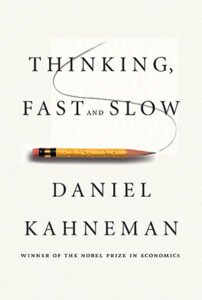|
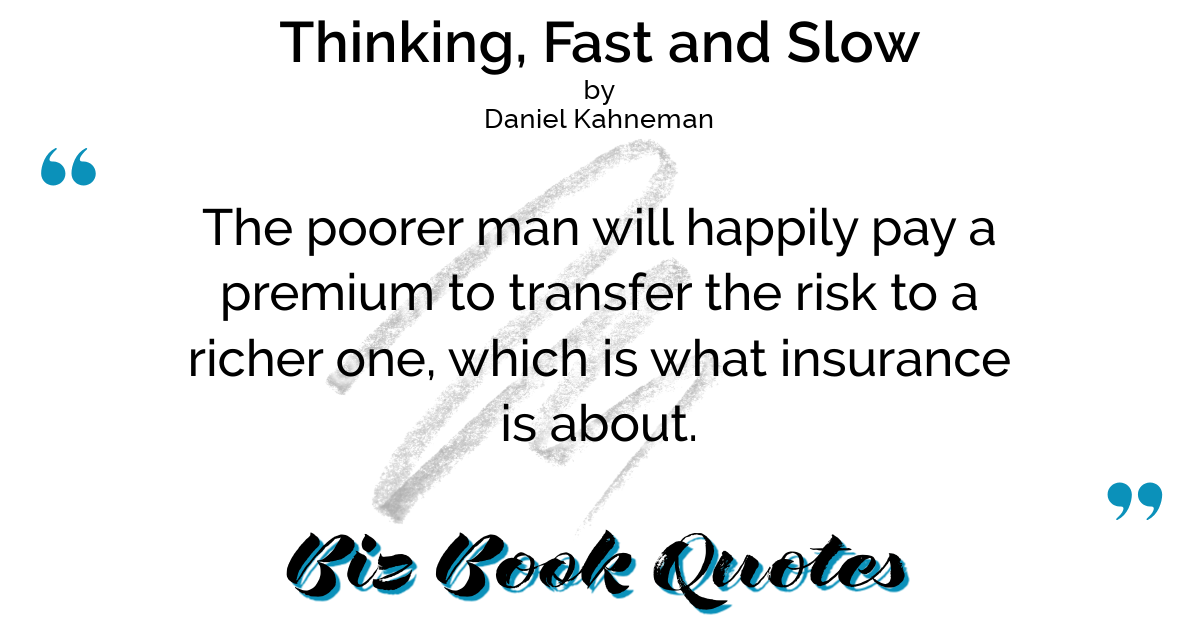
|
Thinking, Fast and Slow:
The poorer man will happily pay a premium to transfer the risk to a richer one, which is what insurance is about.
|
274 |
|
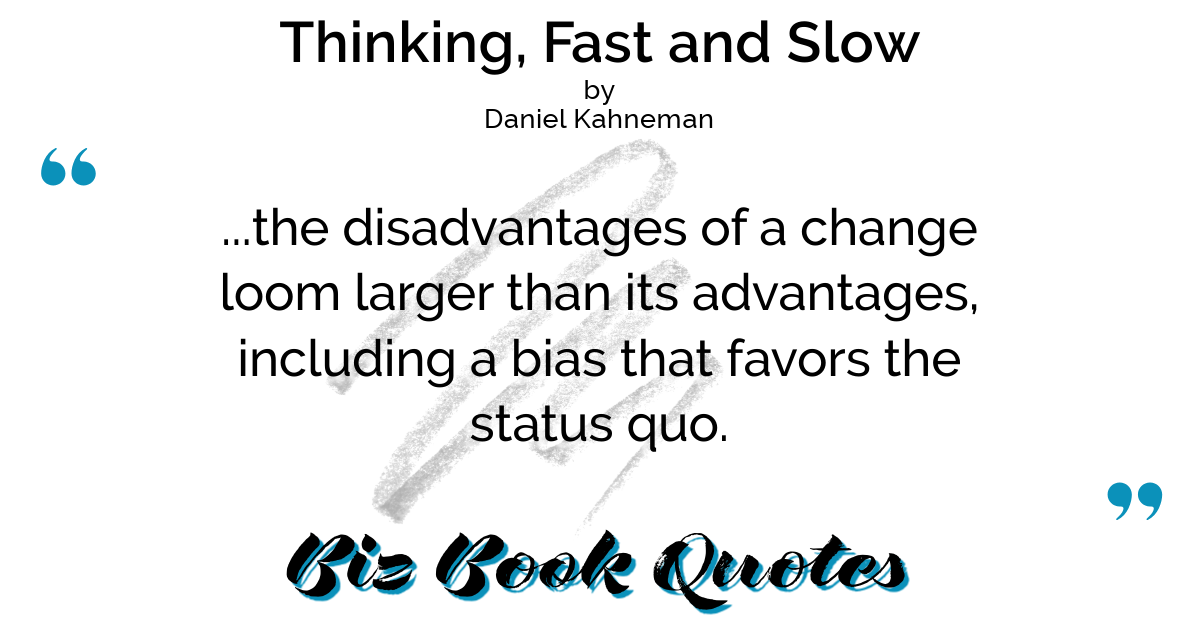
|
Thinking, Fast and Slow:
…the disadvantages of a change loom larger than its advantages, including a bias that favors the status quo.
|
292 |
|
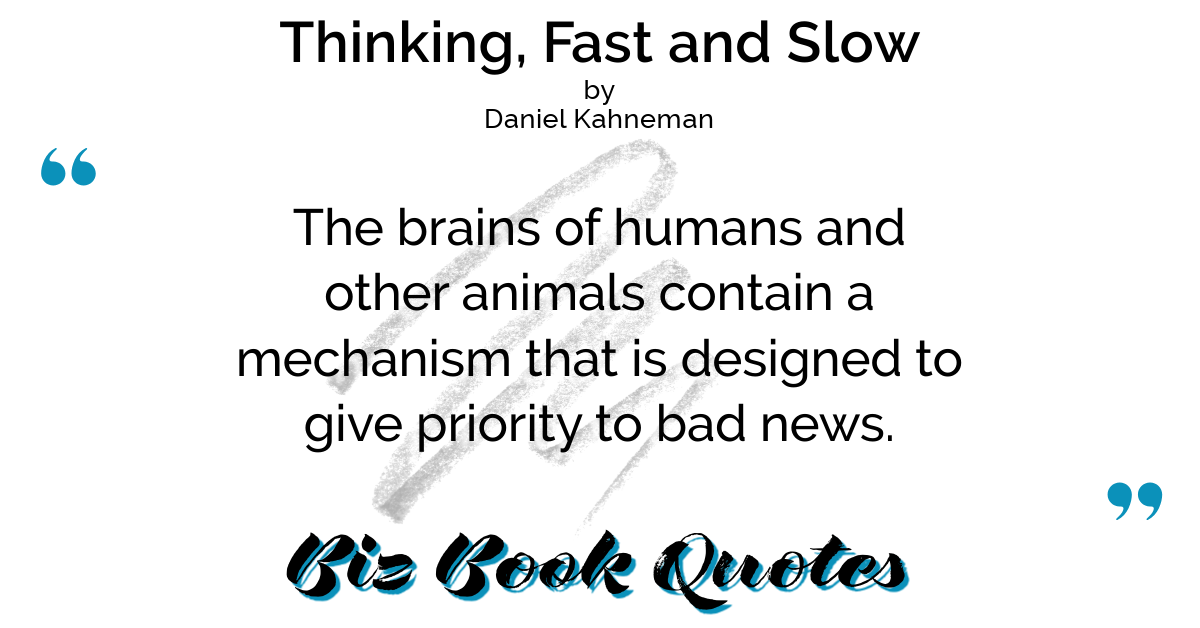
|
Thinking, Fast and Slow:
The brains of humans and other animals contain a mechanism that is designed to give priority to bad news.
|
301 |
|

|
Thinking, Fast and Slow:
Loss aversion refers to the relative strength of two motives: we are driven more strongly to avoid losses than to achieve gains.
|
302 |
|

|
Thinking, Fast and Slow:
If you are set to look for it, the asymmetric intensity of the motives to avoid losses and to achieve gains shows up almost everywhere.
|
304 |
|
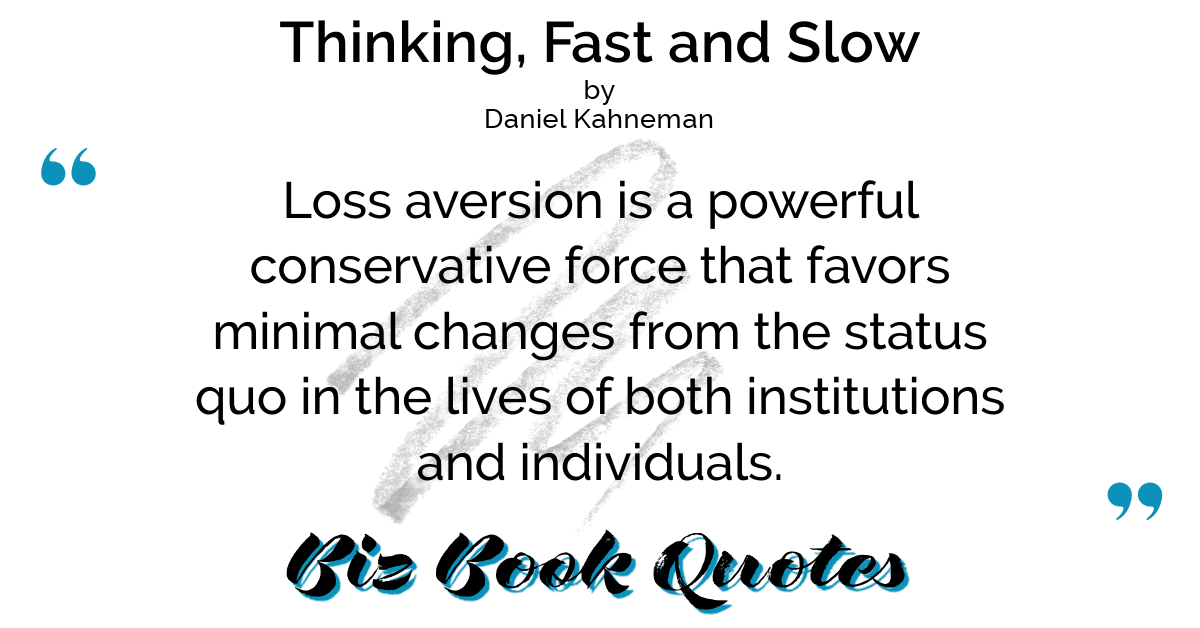
|
Thinking, Fast and Slow:
Loss aversion is a powerful conservative force that favors minimal changes from the status quo in the lives of both institutions and individuals.
|
305 |
|
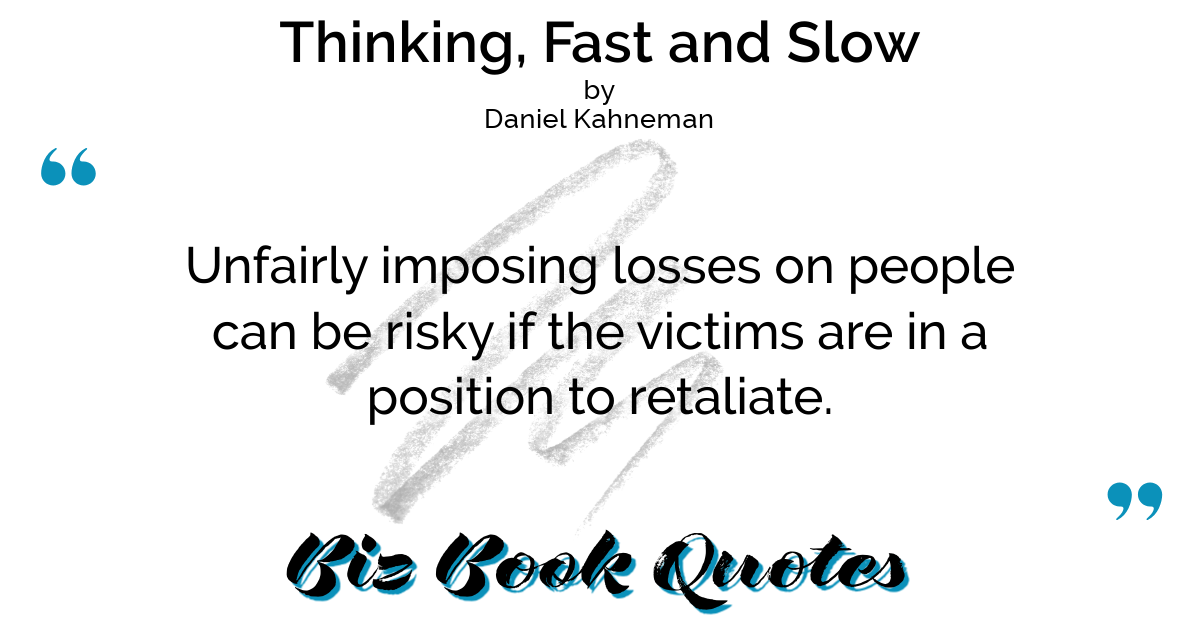
|
Thinking, Fast and Slow:
Unfairly imposing losses on people can be risky if the victims are in a position to retaliate.
|
308 |
|
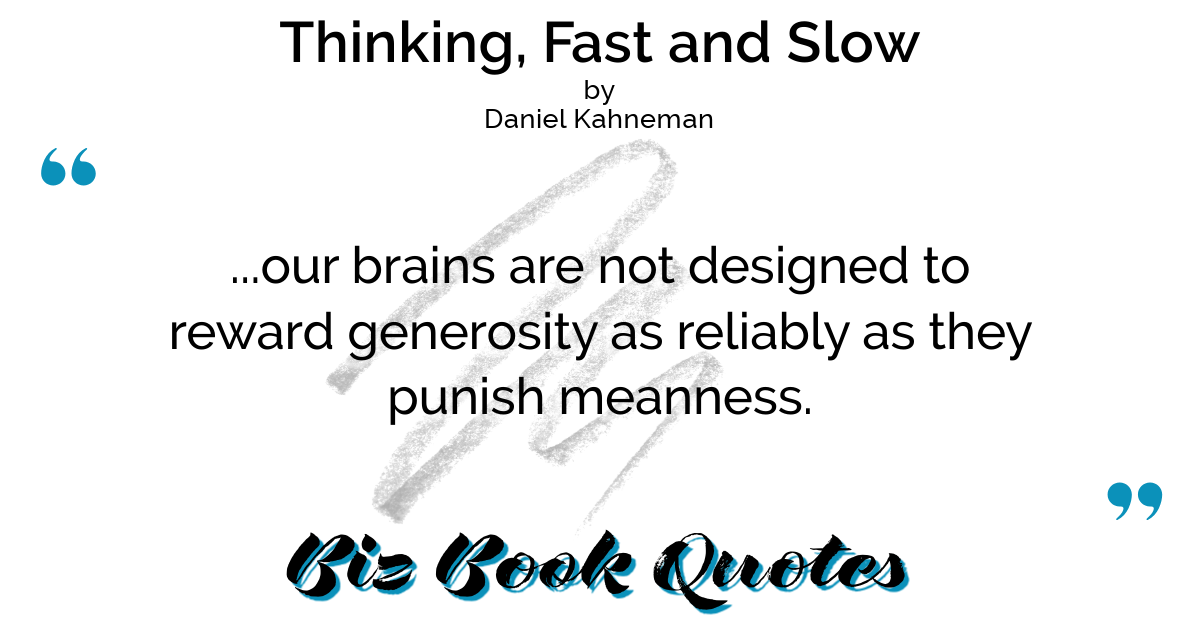
|
Thinking, Fast and Slow:
…our brains are not designed to reward generosity as reliably as they punish meanness.
|
308 |
|
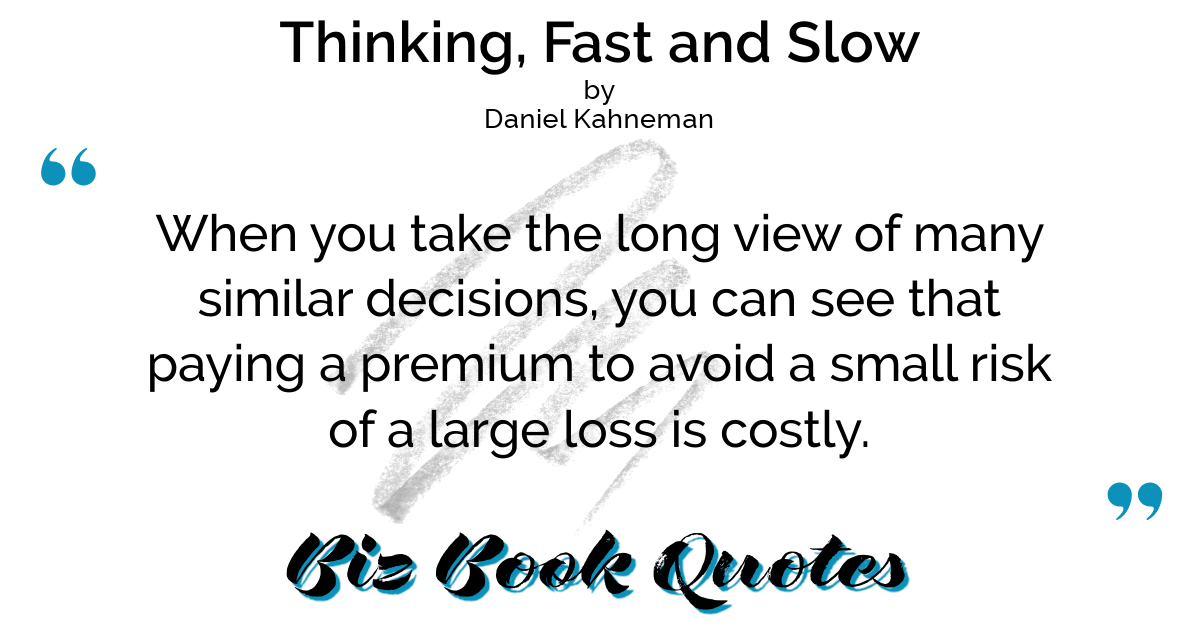
|
Thinking, Fast and Slow:
When you take the long view of many similar decisions, you can see that paying a premium to avoid a small risk of a large loss is costly.
|
321 |
|
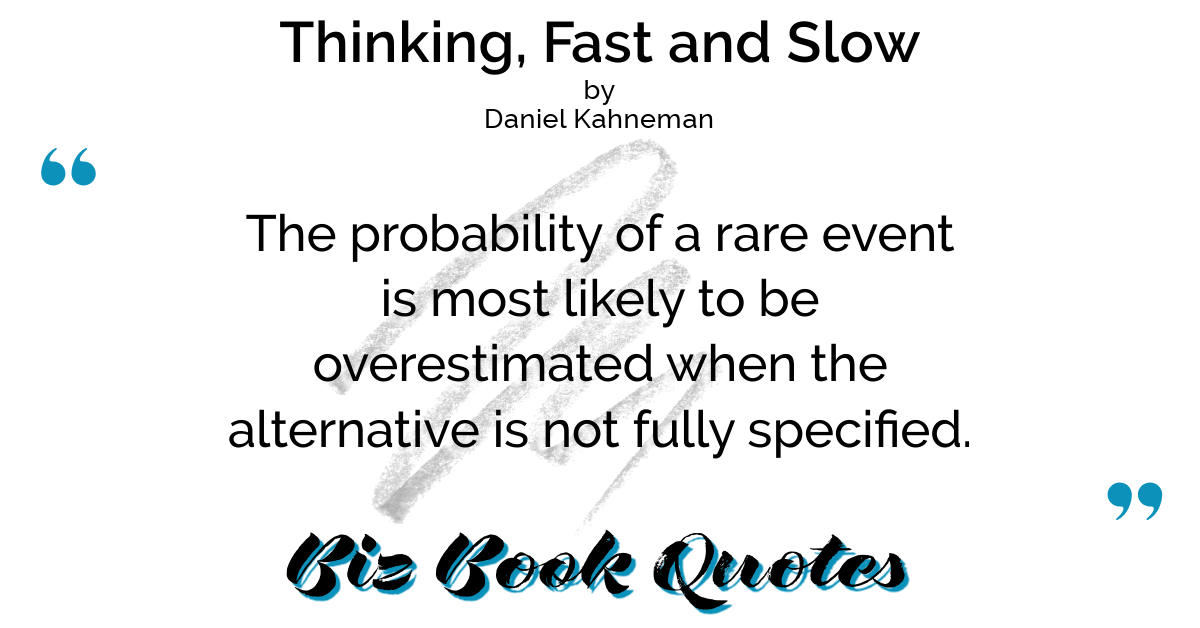
|
Thinking, Fast and Slow:
The probability of a rare event is most likely to be overestimated when the alternative is not fully specified.
|
325 |
